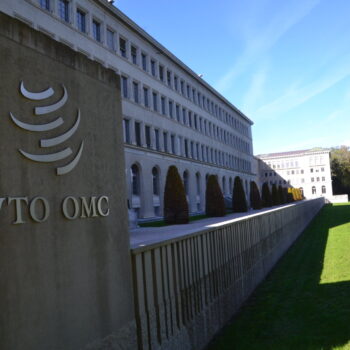UK Prime Minister David Cameron has repeatedly called for the EU to complete its internal energy market and accelerate action on climate change. If he is to get his wish, he needs the European Commission to unpick the incoherent and damaging subsidies that his own government is set to implement.
Today the European Commission will meet to decide whether to undertake further investigation of two of the UK’s proposed Electricity Market Reform instruments: Contracts for Difference feed in tariffs for low-carbon generators, and Capacity Market payments for both new and existing fossil fuelled power plants.
The timing couldn’t be more appropriate, as the clash of aims and actions in UK climate policy was starkly demonstrated yesterday.
On the positive side of policy aims, the UK government announced that it had decided not to revise the 4th Carbon Budget, and would stick by its previous commitment to reduce emissions in 2025 by 50% from 1990 levels. This is a very welcome signal of agreement across the coalition parties, and across Whitehall departments. But as the Committee on Climate Change recently pointed out, this will require a step change in action, as the UK is currently not on track to meet this goal.
At the same time, Environmental groups from across Europe released their report Europe’s Dirty 30: How the EU’s coal-fired power plants are undermining its climate efforts. This highlights how the UK has 9 of the top 30 biggest CO2 polluters in Europe, coming joint top with Germany in the list of shame. Increased emissions from coal over recent years have come from existing power plants running longer hours, thanks to cheap coal and a low price for carbon in the EU’s Emissions Trading System. Action on existing coal is the next big challenge for climate action.
But with existing coal plant facing the decision whether to upgrade to meet air pollution regulations or take a decade to reduce operations and / or close for good, the opportunity surely exists for a managed transition away from the UK’s highest emitters?
Unfortunately, the UK government’s own actions show that this opportunity has been deliberately undermined. In the name of energy security, and with the justification that it wants to build new gas plant, the UK is planning on providing illegal subsidies and preferential treatment to existing coal plants via the Capacity Market. The intention is to keep old coal in the mix into the 2020s, with consumers paying the bill for coal plant to upgrade to meet air pollution regulation.
Today, E3G releases new analysis, which finds that it is plausible that around 10GW of old coal plant capacity could receive multi-year capacity contracts later this year, with a further 5GW of plant also with the potential to take this route.
Our briefing, Keeping coal alive and kicking: Hidden subsidies and preferential treatment in the UK Capacity Market, concludes that the European Commission should launch a detailed investigation of the UK Capacity Market. The current proposals are bad for consumers, bad for the climate, and contrary to EU internal market rules. The UK government proclaims its support for all three of these objectives, but its actions fail to match up to its rhetoric.
We also highlight that:
- The current proposals would lock in high costs to consumers, sideline the benefits of interconnection and demand side measures, and provide unjustified payments to existing nuclear plants. These weaknesses alone are sufficient to justify further investigation of the Capacity Market. But just as importantly, the UK’s proposals would provide privileged treatment and illegal indirect subsidies to existing coal plants in an attempt to further extend their operating lifetimes and generation output.
- The UK is proposing multi-year contracts for existing coal plants, which would provide illegal subsidy for upgrades. Payments on a yearly basis would instead be sufficient for maintaining security of supply over the next decade. The Commission should require the UK to revise these elements of its proposals.
- Other EU member states are currently considering capacity mechanisms and / or the provision of financial support for existing coal plants. The European Commission must not set a dangerous precedent by approving the UK’s complicated and inconsistent approach, which runs counter to the Commission’s own advice. Specific restrictions on subsidies to existing coal plants are required to ensure coherence between objectives on climate change, energy security, and the completion of the Internal Energy Market.
So what’s it to be? David Cameron’s reputation as a climate champion was enhanced by yesterday’s decision on the 4th Carbon Budget. All eyes are now on the European Commission to see whether they will rescue him from becoming a coal champion instead.


